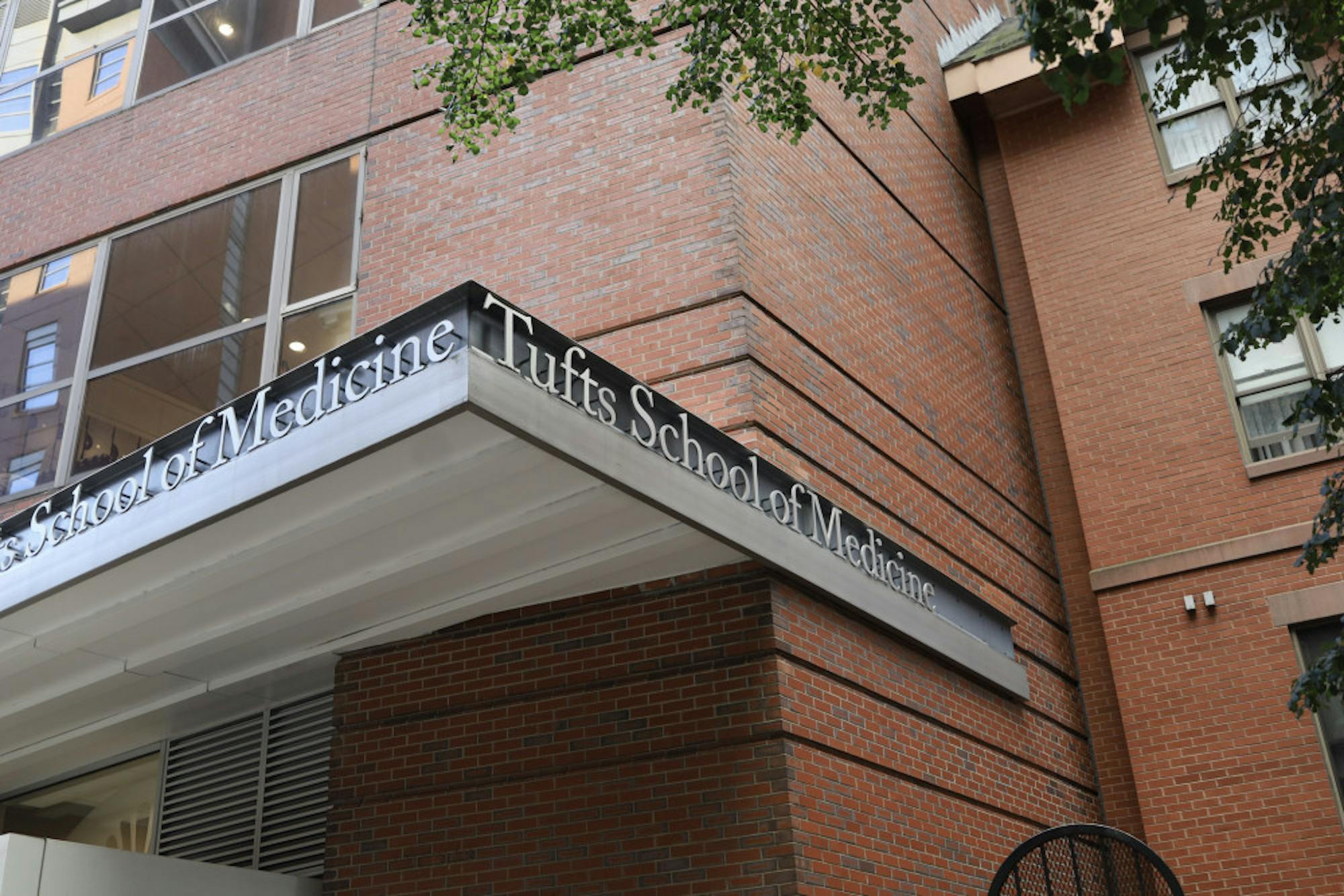The Tufts University School of Medicine hosted the latest addition to its Global Health Seminar series on Wednesday, which focused on the emergence of African-centered healing circles to address long-standing effects of anti-Blackness in the U.S.
Entitled “A People’s Mental Health Movement: Sawubona and the Rise of Healing Circles,” the event primarily featured Dr. Evan Auguste, assistant professor of psychology at UMass Boston, discussing his role in co-developing, leading and scaling community healing circles.
Motivated by the severe loss of life of and around Black care professionals during the COVID-19 pandemic, Auguste explained why exactly he pursued the development of healing circles as an alternative mental health solution.
“A coalition of Black professional organizations reached out to the Association of Black Psychologists … [after] seeing a lot of Black care professionals, Black first responders who are on the front lines … losing people in their day-to-day lives,” Auguste said. “They said, ‘can you develop something for our first responders to hold the specific nature of this recent trauma?’”
Auguste introduced the Sawubona Healing Circles program, developed in response to this community need.
“Sawubona is a Zulu greeting,” Auguste said, which translates to ‘I see you. We see you.’ “Among the Zulu people, seeing is an act of bringing people into oneness. … It’s based on the very core philosophy that we exist in community.”
As described by the Association of Black Psychologists, these healing circles are not a form of therapy but instead offer participants — individuals of African ancestry — the opportunity to share lived experiences and tactics for coping with race-related stress.
“African-centered healing circles are meant to be trustworthy spaces in which Black people come together to share their stories, process and heal from the historical and contemporary impact of anti-Blackness in our lives,” Auguste said. “In these circles, as opposed to relying solely on the mental health professionals … Black people serve as each other’s medicine … not only in response to the collective grief and trauma that killings have caused but also for the steady, ongoing, unrelenting drumbeat of chronic smoldering everyday racism.”
Auguste explained the theoretical motivations behind the need for African-centered healing circles, an approach he said is “built on Africanness.”
Much of the philosophical foundation for the project came from historic Black writer Frantz Fanon.
“For Frantz Fanon, his idea was that African culture, Black culture was constructed [as] a response to the colonialism, the anti-Black racism that African and African-diasporic peoples were experiencing,” Auguste said. “Thus there’s no authentic natural African culture that arises by observing these distinct communities; what we call African culture is a response to that oppression.”
Auguste also discussed how the science behind the healing circles contradicts traditional Western thought by basing itself on the philosophies of shared African culture.
“We have these multiple understandings for how to understand community, people, religion, spirit to interact,” Auguste said. “This can inform how we understand health, how we understand mental health, and trying to over impose these distinct ways of being into a Western psychological approach is rendering our understandings more shallow.”
Auguste noted the basics of African-centered psychology.
“African-centered and Black psychology asks the question, ‘what does our understanding of mental health, of the mind, look like when we reroute this discipline in those indigenous wisdoms?’” Auguste said. “We take the very first people who are asking about the questions of, ‘What is the mind? What does it mean to be well? What does it mean to be in a community?’ and continue that process.”
Auguste further explains how the spirituality shared by many African subcultures can be just as important for health as other widely held aspects.
“When … I’m talking about mental health, understanding [that] for a sizable number of people, spirit, not just the physical, not just the mental, but the spiritual [aspect] factors into how people understand themselves in the world,” Auguste said.
Shifting to a contemporary perspective, Auguste discussed how theory became practice. Auguste said that, for many, their first encounters with mental health professionals happen during incarceration.
“We’re talking about a mental health system where there’s far more investment in the control and erasing of people than seeking to uplift well-being,” Auguste said. “So that's the context in which we see this rise of the healing circle modality.”
Auguste then explains what healing circle leaders heard in trial runs of the new mental health practice.
“People came to the healing circles with racial battle fatigue, racial trauma. … The pain of watching George Floyd was an example,” Auguste said. “The pull of racial trauma heightened during 2020, reopened wounds and the stress of trying to cope [and] broad discussions of systemic injustice [were discussed].”
While leaders provided ‘a broad structure’ for participants by teaching them the history of African-centered psychology, to Auguste, “the core piece of this is [that] we wanted people to bring whatever Afro-diasporic cultural background they had — the history they were brought up in — to co-construct this space.”
To close, Auguste emphasized the positive personal experience he had in participating in these healing circles.
“It was fascinating to see that as long as people brought that warmth, the impact was still felt,” Auguste said while describing participants who shared breathing methods and affirmations with their groups. “We saw themes of praise, gratitude, validation, engagement and excitement. … I hope these get support to grow because it’s lacking in most communities.”






